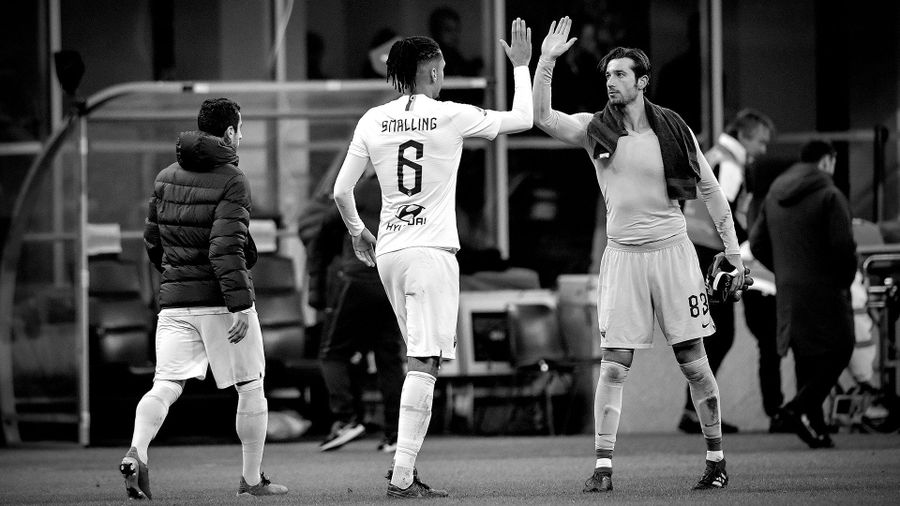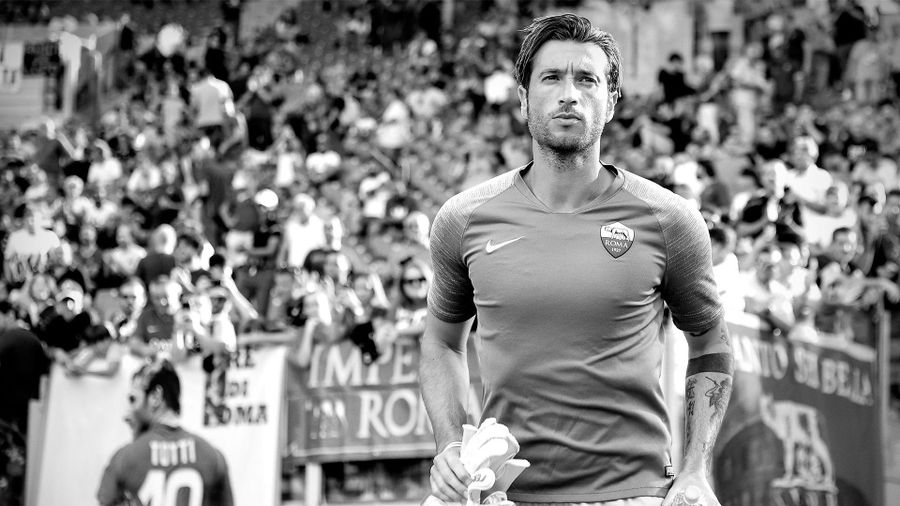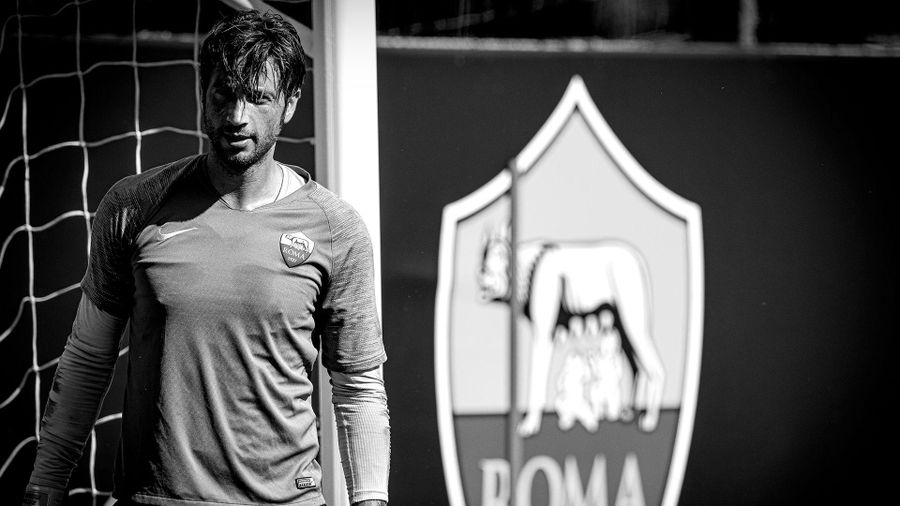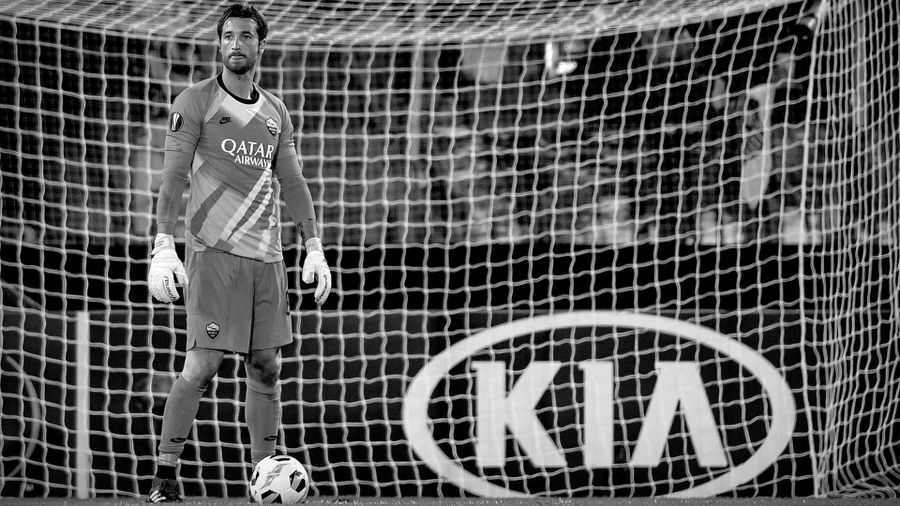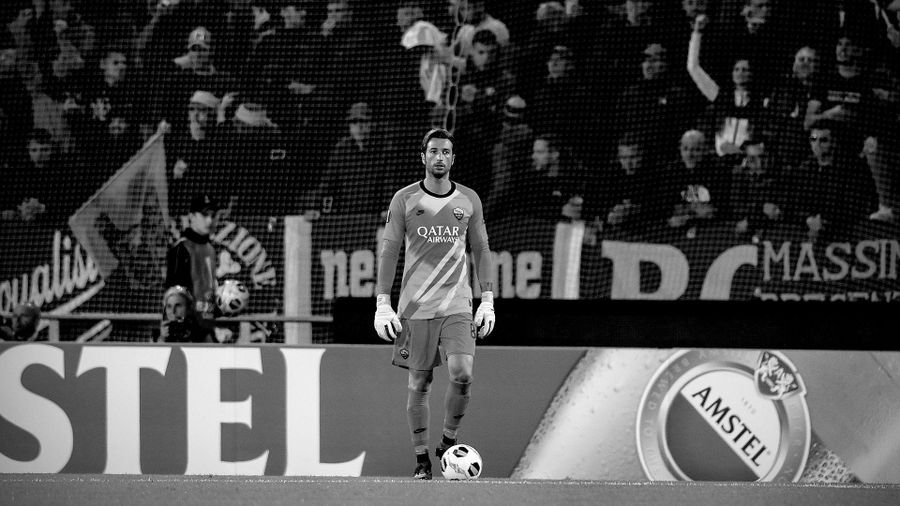
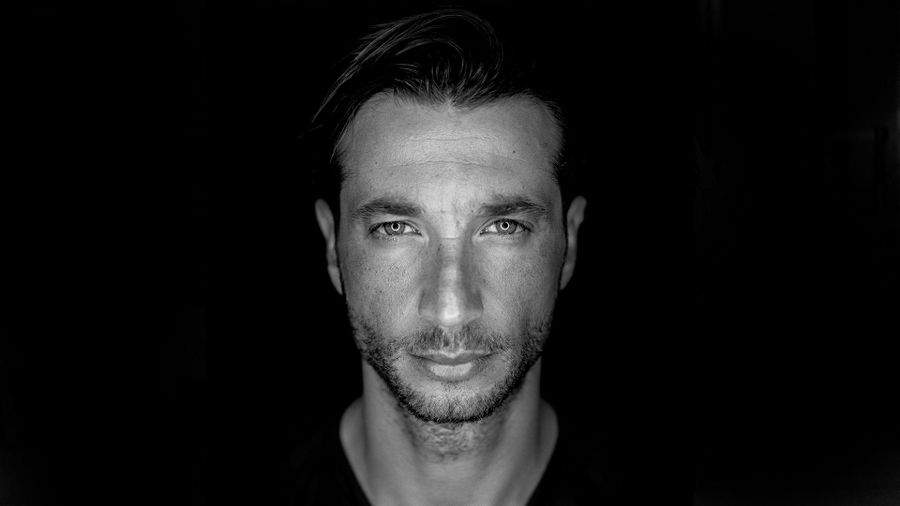
When Antonio Mirante's career is all said and done, he will certainly have some stories to tell.
As a young goalkeeper his professional career began with him as a back-up to Gianluigi Buffon, a starry start to his journey that has since taken him from a cut-throat world of Serie B to stops at a number of clubs in Serie A.
Now enjoying life with Roma, we sat down with Mirante to reflect on all those stops along the way...
What were you like as a boy?
“I was a shy kid, very reserved. I felt more mature than my age. I was a bit of a loner. I guess it was natural for me to become a goalkeeper with the character I have. My brother gave me a bit of help too, though: he’s four years older than me and he always put me in goal when we played together.”
So you were always a goalkeeper…
“I was forced to play there at the start but then it became my favourite position. I liked playing in attack too when I was young, but I never had any doubt what my real position was. We played in the street a lot of the time. I was always with my brother and his friends. We’d use rucksacks, rocks or toy cars as posts, or we’d choose a gate. That was a great learning experience. Thinking back, it seems like a completely different age.”
Did you start off in goal in your first team as well?
“Yes, I started playing in goal for Club Napoli Castellammare when I was six. I was lucky to have a coach, Ernesto Ferrara, who gave me a really good grounding. He had been a goalkeeper himself and played in Serie B. He coached the Donnarumma brothers and Gennaro Iezzo too. He was like a second father to me.”
Did you have a role model or a goalkeeping idol as a child?
“I had several. Kids of my generation looked up to Gigi Buffon and Angelo Peruzzi. I really liked Walter Zenga too, and I liked Pino Tagliatela’s style. I always admired Luca Marchegiani for his technique.”
Who did you support?
“I’ve always supported Juve Stabia – it runs in the family. My uncle was a huge fan and I often went to games with him, my dad and my brother. I still follow them even today. They were in Serie C1 when I was young, then they went bankrupt and had to start over from Serie D. They worked their way up to Serie B and got promoted there again this season. There were lots of teams in Serie C at the time with big followings: Nocerina, Juve Stabia, Savoia, Turris and Casertana all came from big cities. You’d often get a really fiery atmosphere at matches. I’d go to away games whenever I could with a group of fans from my neighbourhood, Madonna delle Grazie.”
Were you there for the playoff final against Atletico Roma at the Stadio Flaminio in 2011?
“No, I couldn’t go because I was at Buffon’s wedding that day but I’d been following their run to the final. They were excellent then, as they were last summer too."
After Club Napoli Castellammare you went to Sorrento…
“That’s right. I was 14. After a year in the Berretti (U18) team, I became first-choice keeper in Serie D. My character was already fairly well developed. I was playing with the senior team and our group had teams like Campania and Lazio in it, so there were some pretty tough matches! The last match before I joined Juventus was away to Pro Ebolitana and it all kicked off. They were nearly all derby matches: there was us, Palmese, Casertana, Terzigno. It was a real battle every Sunday.”
What was it like to go from that to the Juventus academy?
“It was hard to begin with. I left home overnight and things were totally different there. Going from playing matches with adults to the U17 team in a highly organised youth academy was a bit like starting again on a different set of tracks. I spent five years there and in the last one I was third choice for the first team.”
And you were training with some big-name goalkeepers.
“I spent my first summer training camp at Juventus with [Edwin] van der Sar. He didn’t have much luck at Juve but he was a fantastic keeper. Then Gigi Buffon joined and I spent two years with him. He was absolutely world class but he’s always been very charismatic and down to earth at the same time. He’s always got time for all his team-mates.”
By then it must have been clear that you were on the verge of turning professional?
“In those years we won the Viareggio Cup twice and the Coppa Italia once too. Juventus had brought in lots of very talented youngsters – before then other academies were better. I could sense I was close to achieving my goal but goalkeepers follow a different path to other players.
"Serie C was your most likely destination when you came out of the Primavera, or Serie B if you were lucky. Then you would still need to be both good and lucky to make a name for yourself. I joined Crotone in Serie B where Gian Piero Gasperini was coach. They had just been promoted and that year we managed to stay up comfortably, with lots of Juve youngsters like Matteo Paro, Daniele Gastaldello, Abdoulay Konko, Domenico Maietta, Tomas Guzman. After playing well there I realised I might be able to make it at the top level.”
What advice do you have for a youngster looking to make it as a professional?
“Leaving the academy is a bit like leaving school and joining the adult world. There’s a lot on the line: you’re always chasing targets and every point matters.
"There can be a lot of hurdles. Most youngsters who leave the academy of a big club go to other teams on loan. I don’t think you should make the mistake of assuming there will always be a parent club there to help you and shield you. You have to really become a part of whatever club you join so that you can overcome the difficulties you’ll face. It doesn’t matter where you’ve come from because you’ll be alongside lots of other talented players who have all followed different paths but all have the same goal as you.”
After Crotone, you joined Siena. What was it like playing in Serie A?
“Our first game that season was a 4-0 defeat to Atalanta in the Coppa Italia. Then in our first league match we found ourselves trailing to Cagliari after 10 minutes and fear started to set in, but we ended up winning that game and then the season turned out well. 25 matches into the campaign I lost my place in the team and Marco Fortin became first choice, then I earned it back a few games later. I had an excellent goalkeeping coach there too: Francesco Anellino, who sadly lost his life in a car accident. He was a later member of Antonio Conte’s staff and that year Conte was Luigi De Canio’s assistant.”
After Siena you rejoined Juventus in Serie B. What was it like being at a big club during such an unusual season?
“I’d have preferred to stay at a team where I had more chance of playing but Juventus called me back. I was in Serie B with four players who had just played the World Cup final as well as Pavel Nedved. It was a strange situation but it was also a great learning experience for me. I was 23 and I saw it as a year for me to learn as much as possible. It was a fantastic team and there were other fantastic teams such as Napoli and Genoa who went up with us that year.”
You joined Sampdoria after leaving Juventus…
“I left Juventus because I wanted to play, but Sampdoria wasn’t an easy experience. Part of that was my fault. I took the fact that I wasn’t always playing too personally – I should have been more relaxed about it but that’s not in my character. We had two good years from a team perspective, reaching the Coppa Italia final in one of them. Then I joined Parma and things clicked for me.
“Parma were the perfect team for me to become a complete goalkeeper. Up until then I’d been a young goalkeeper, with some good attributes, but I hadn’t fully developed. I matured a lot at Parma and loved the city. We achieved some good results and I established myself as a Serie A goalkeeper. With [Roberto] Donadoni in the dug-out, we managed to qualify for the Europa League, although unfortunately we weren’t able to play in it…”
Your final year at Parma coincided with the club going bankrupt. What was it like to experience that from the inside?
“I saw everything you should never see at a football club. One day people came to seize the gym equipment while we were training – we couldn’t believe it. I still don’t know whether those responsible were punished. All of the employees were treated very poorly and it really was a dark time for football. We’d come sixth the season beforehand and were ready to play in the Europa League, but UEFA denied us a licence and that’s where the ordeal began.”
After Parma, you joined Bologna.
“Another team that I enjoyed playing for. They’d just been promoted. The club president, Joey Saputo, is a really decent person, the city is beautiful and the fans are great. I had three fantastic years there. I had a tough time there with a heart problem which kept me out for three months, but there was real support from everybody around. Bologna was a very happy time in my career.”
Can you tell us more about your heart problem?
“Everything started when I began feeling unwell the day after a match against Torino. In the first ten days, I had all sorts of thoughts. I was very afraid – I thought back on my career and my whole life. I was 33 and I cared deeply about my career, but at the same time I thought: ‘I’ve done ten years in Serie A.’ At that time, my main focus was on getting better.
"I had treatment at the Gemelli hospital in Rome. After 10 days of tests, they discovered that thankfully there was no congenital problem, just myocardial inflammation. That meant I would be able to play again. It was a relief. Even though I couldn’t even jog for three months, mentally I was already focused on my return. I tried to stay close to the team, even when we were playing away from home. And once I got back into training, I started to think of it as just another injury.”
How did it feel when you were able to play again?
“My first game back was at home against Atalanta. We lost 2-0 and at the end of the game, the goalkeeping coach – Luca Bucci – told me that he’d never seen me so nervous. And he was right. I’d been really stressed over the previous few months and had lost four kilos. In the blink of an eye, I’d found myself on the brink of having to stop playing football. But I count myself lucky that I was in the care of Dr Paolo Zeppilli and his staff at Bologna.”
Have you made lots of friendships in football over the years?
“I don’t agree when people say you can’t make friends in football. It depends on the type of character you are. I met Raffaele Palladino at Juventus and we’re still close friends to this day. I was a young lad when I was at Siena and I built up a great relationship with Daniele Portanova, who was young but had three kids. [Antonio] Cassano was a great friend to me both at Sampdoria and Parma. We had a wonderful group at Parma – same thing for Bologna. I’ve met lots of great people thanks to football.”
You’ve faced off against Roma on many occasions. What did you make of the Giallorossi as an opponent?
“It was always tough against Roma as the goalkeeper of a small team. I always got the impression of a team that had a great bond with its players – [Francesco] Totti, [Daniele] De Rossi, [Alessandro] Florenzi when I joined and now [Lorenzo] Pellegrini. That’s one of the reasons I always admired Roma, on top of the great players. I had some good games but also took a few beatings…”
And now you’re a Roma player yourself…
“The opportunity came up at a time when I wasn’t considering leaving Bologna, but I felt that the time had come for me to have an experience at a big club. I was really surprised by the environment I found here. Roma is always painted as a team where there is lots of pressure, but my experience couldn’t be more different. The facilities are fantastic, the atmosphere is exceptional and the club is first-rate.”
Do you have a highlight from your first season?
“The first leg of the Champions League Round of 16 clash against Porto. It was one of the most important matches of my career. The strange thing about that game was that even though we were 2-1 up, in the closing stages I didn’t have that normal desire for the final whistle to blow. I would have liked to have continued playing for another 90 minutes – that was the first thing I said to my dad after the final whistle. I enjoyed every minute, from [Nicolo] Zaniolo’s two goals to the final result. It’s a shame that they scored, in quite fortuitous circumstances too.”
Moving on to the current season, how are you enjoying working with Paulo Fonseca and his coaching staff?
“It’s been a nice surprise. He settled in very well from the start and had a big impact on the group. We all bought into his ideas, his attitude and his playing style. It’s a real shame that we had that negative period after the winter break. Following a good start to the season, that month really hurt us, though we were starting to get back on track in terms of results and play. I think Fonseca is the right coach for Roma.”
Soon after that the season was put on hold. How has lockdown been for you?
“It wasn’t easy to interrupt our routine of training, pre-match camps and travel for matches in the league and cups. But we’ve all had to sacrifice our habits and it wouldn’t have been right for us to complain. It was good to see that none of the squad left Rome – I saw that as a sign of there being a strong sense of belonging and responsibility. We’ve all shown respect for each other. I never considered going home to Naples, which is an hour and a half from Rome by car.
“The club has been fantastic – they provided us with everything we needed to train straight away. As soon as the Sevilla game was officially postponed, the club’s first concern was for our health and the health of our families. And I don’t think any club has done more than ours in terms of initiatives for the city. I’ve been proud to be part of it.”
How have you passed the time at home?
“I’ve watched lots of films and TV series and used the time to learn a bit of English. I’ve spent lots of time with my dog, which I only got recently. I’ve tried to make the most of this strange time – I don’t like complaining and I don’t like people who do.”
What’s it been like coming back to Trigoria?
“It wasn’t easy to return to training in groups, wearing masks, without being able to use the dressing room or take part in practice games or team drills. I’ve seen these first few days as preparation for the next stages. From an organisational standpoint, everything has been prepared perfectly to allow us to adhere to the restrictions of this phase. It’s difficult not knowing for sure when football will come back and how many games we’ll need to play. That’s definitely something that affects how we work, but thankfully our coaching and medical teams are very well prepared.”
Are you keen for football to return?
“Yes. Up until a few weeks ago I was afraid that it was going to be difficult to find an agreement on how the league could return, but we were always desperate to get going again. I think football can provide everyone with a big lift.”
Check out earlier entries in our Big Interview series:
AS Roma x Juan Jesus
AS Roma x Diego Perotti
AS Roma x Justin Kluivert
AS Roma x Amadou Diawara
AS Roma x Jordan Veretout
AS Roma x Elisa Bartoli
AS Roma x Betty Bavagnoli
AS Roma x Chris Smalling
AS Roma x Edin Dzeko
AS Roma x Gianluca Mancini
AS Roma x Aleksandar Kolarov
AS Roma x Nicolo Zaniolo
AS Roma x Jim Pallotta
AS Roma x Cengiz Under
AS Roma x Paulo Fonseca
AS Roma x Leonardo Spinazzola







 Shop
Shop

















